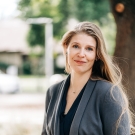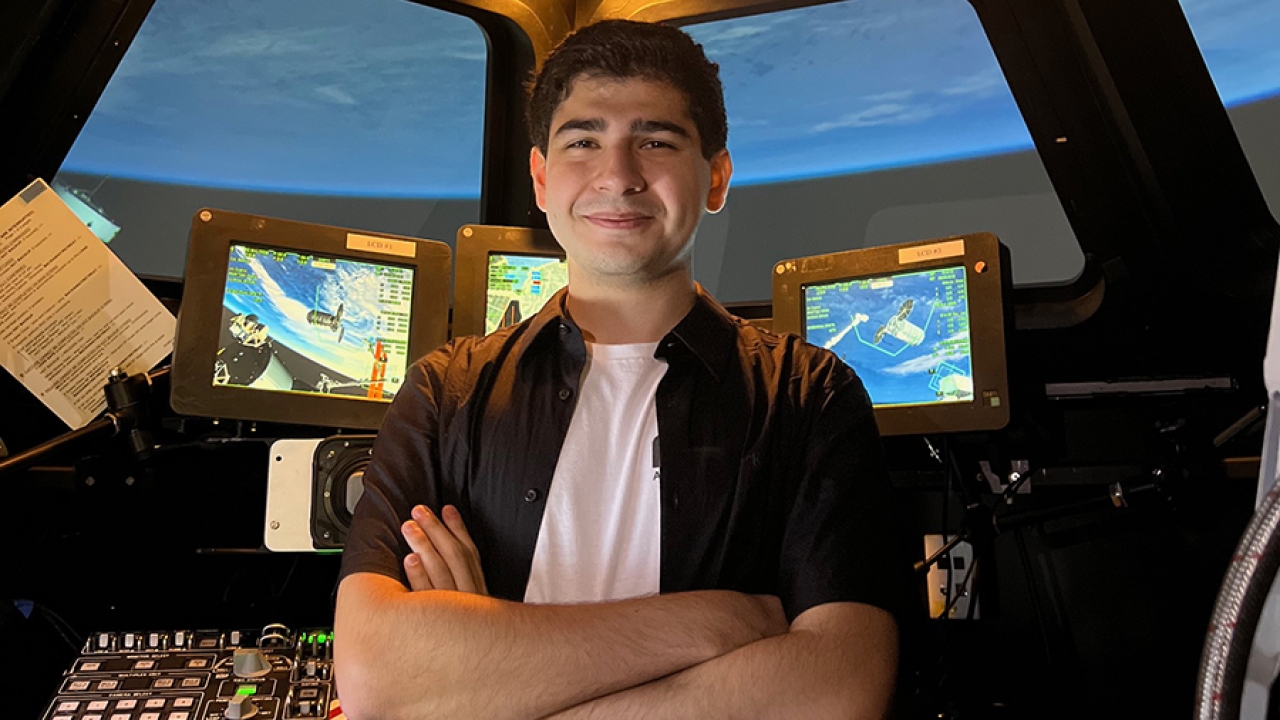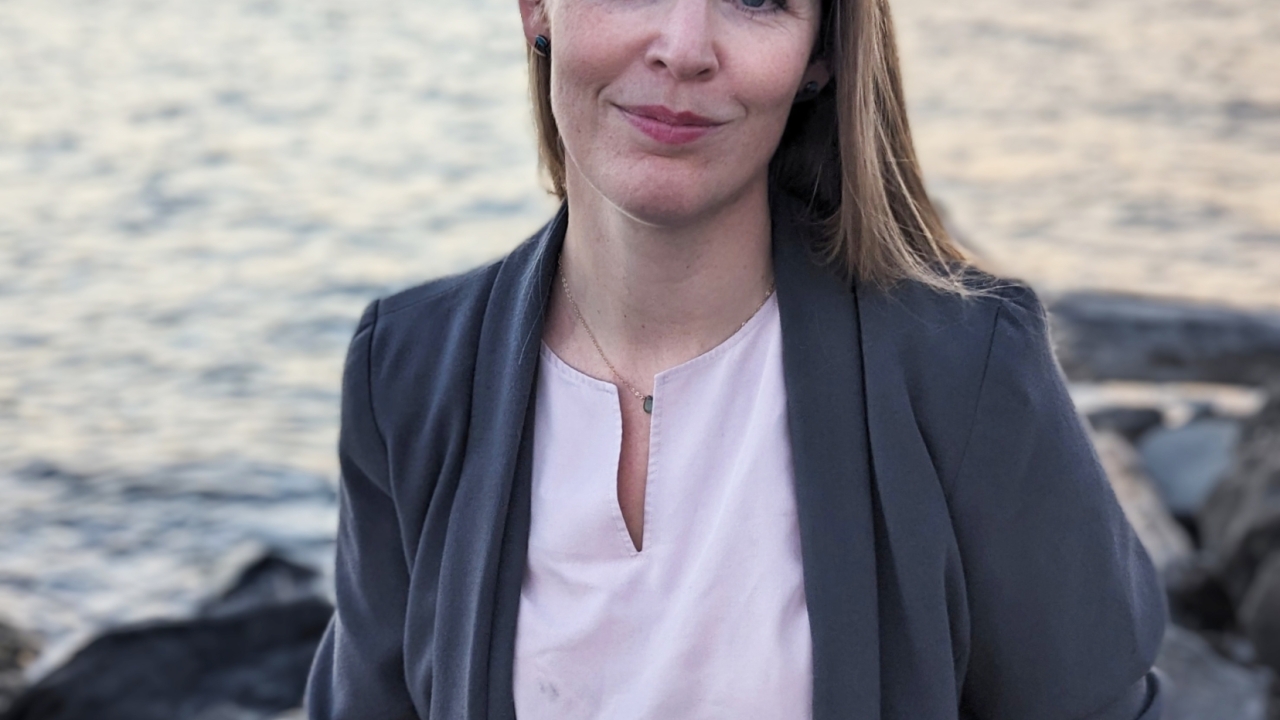
New Computer Science Professor Aims to Turn the Tides of Climate Change by Applying Machine Learning to the Ocean and Climate System
Growing up in Norway, where 63,000 miles of coastline border the Norwegian Sea and 1,190 fjords guide waters further inland, new assistant professor in the Department of Computer Science Maike Sonnewald's connection to the ocean runs deep.
"I have early memories of being swept around by the currents when scuba diving," she said. "That might sound terrifying, but it wasn't for me. The vastness, power and dynamics involved was something I was fascinated by and appreciated at a fairly young age."
It was natural, then, for Sonnewald, who leads the Computational Ocean and Climate Group at the University of California, Davis, to pursue oceanography to learn how the ocean worked and its role in Earth's climate systems as an avenue to contributing to climate change solutions. What became clear to her, however, was the limited nature of oceanic data from observations and computational models and the wealth of opportunities to use machine learning to learn more about the ocean's role in the climate system.
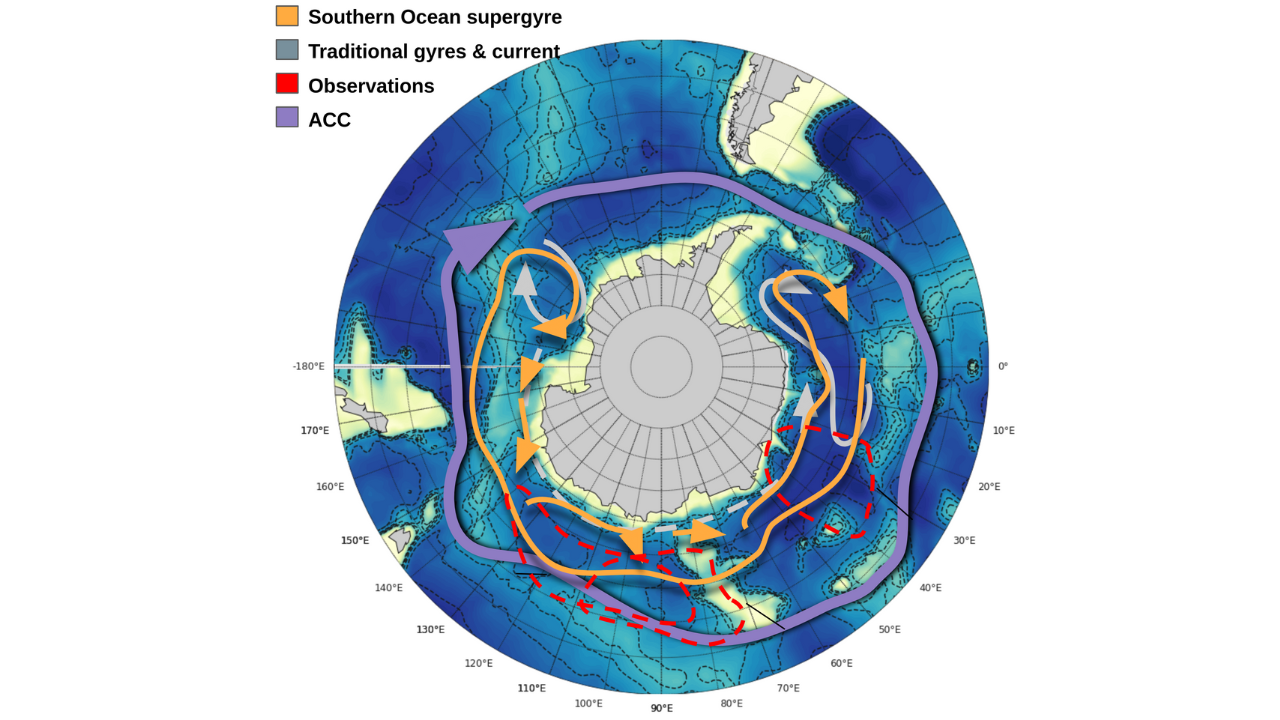
In pursuit of this challenge, Sonnewald took an interdisciplinary approach to her education. At the University of Southampton, Sonnewald earned master's degrees in both complex systems simulation and in physical oceanography and a Ph.D. in complex systems simulation based at the university's National Oceanography Center.
Before joining UC Davis, she was an associate research scholar at Princeton, and she is an affiliate assistant professor at the University of Washington. Her postdoctoral research was conducted at MIT, and she has held visiting and affiliate positions at Harvard, the University of Texas at Austin and the University of Grenoble in France.
Navigating Uncharted Waters
To build computational models of the ocean and climate, you need observational data to validate against. Unfortunately, sending a person, ship or an autonomous robot to take samples in the ocean is not only impractical but also dangerous due to the ocean's size and volatility.
Take the Southern Ocean, for example, which comprises the ocean surrounding Antarctica. At more than 7 million square miles, it is designated as the second smallest of the world's five oceans, and much of it is under ice. Additionally, the weather system is viciously brutal, making it an incredibly hostile work environment.
"The Southern Ocean is a particularly nasty place to be," said Sonnewald. "The waves there are so massive they can break tankers. You're dealing with intense winds, freezing temperatures and massive waves, which makes it oceanographically fascinating and having data from that would be unbelievable. But you don't want to be there when the weather is rough."
So instead of sending a person or robot into hazardous circumstances, Sonnewald took previous observations of the ocean and models of the surface from the past few decades and applied a physics-informed unsupervised machine-learning framework to the data.
She concluded that components of the Southern Ocean are working together to create what Sonnewald calls a supergyre system of circulation when it was previously thought that they were working as separate entities. This groundbreaking research indicates that the supergyre system cycles waters from the depths to the surface, bringing nutrients and carbon with it that affect everything from the global food chain to the atmosphere.
Sonnewald's research pioneers methods and delivers insight aimed at contributing to our knowledge of the ocean and its role in climate, with the goal of ultimately using this insight to enhance our predictive capacity. In other words, understanding the fundamentals of what is happening now to make better predictions in the future looking ahead weeks-to-months and decades-to-centuries.
The ocean, for example, plays a massive role in our weather and climate system. Currently, we can't make accurate forecasts of weather or even sea level more than a few days in advance, and future projections of climate still have problems. Sonnewald hopes to change that.
"If we're wanting to prepare for the next wildfire season, we need to know what the weather is going to be like in a few weeks or the next six months," she said. "For agriculture, where are the atmospheric rivers going to hit, where's that hurricane going to land? In terms of building resilience, we need a paradigm shift for how to predict long-term and long-range weather. That's something where learning more about the interplay between the atmosphere and the ocean is really going to come in and change the game."
Making Waves Now and in the Future
While some impacts of her research may not be known until years from now, Sonnewald's work is currently influencing strategies and legislation for building climate resilience across the globe.
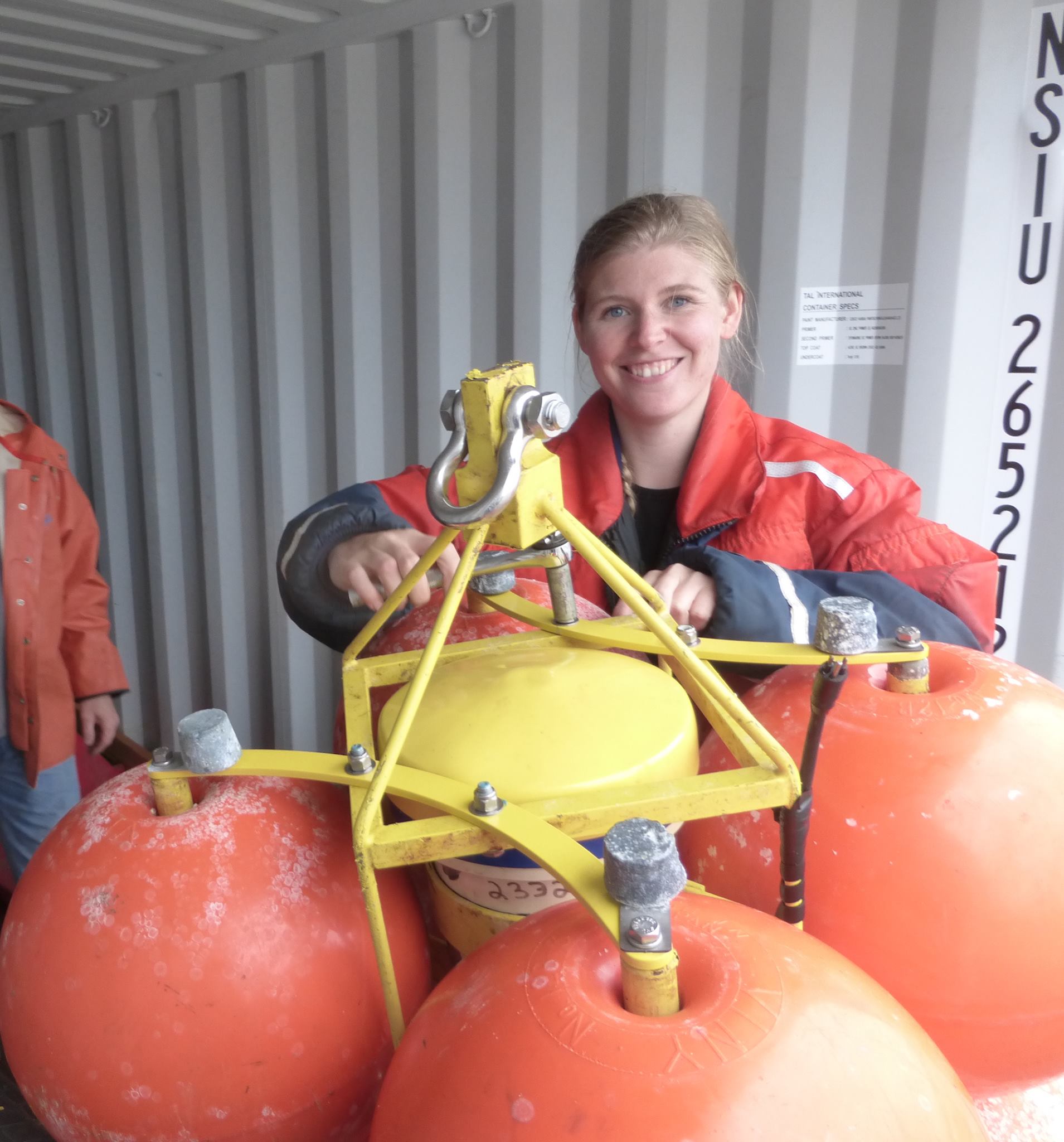
Her research was featured in the National Oceanic and Atmospheric Administration's Artificial Intelligence Strategy, which aims to increase the use of AI and machine learning to understand climate, weather, the ocean and coasts. It also provided part of the scientific basis for New Zealand's Marine Protected Area legislation in 2020.
Additionally, her work contributed to a report by the European Parliament on AI and fisheries that offers policy recommendations relevant to EU decision-making, and a concept note from the World Meteorological Organization on the advancements of AI in the environment modeling community. Her research is also used to improve climate models nationally and internationally.
Sonnewald is looking forward to having conversations about other ways her research may have impacts now rather than 50 to 100 years in the future in her new role at UC Davis, where she feels the opportunities for such conversations are abundant. At one upcoming event, the university's Coastal and Marine Sciences Institute plans to connect local policymakers with UC Davis faculty.
"Being part of a wider conversation with community and policymakers is where you can learn, 'Okay, what is actually useful?'" Sonnewald said. "There's a lot of powerful incentives, and tapping into that, and accelerating and innovating is something I'm really looking forward to being a part of."
She is also eager to work across a broad spectrum of expertise and talent. Within her Computational Climate and Ocean Group, Sonnewald, who was selected as a 2023 Faculty Scholar of the UC Davis Center for the Advancement of Multicultural Perspectives on Science, hopes to work with a diverse range of students, both in fields of study and representation.
Outside of her lab, Sonnewald is enthusiastic about collaborating with the other branches of computer science and perhaps looking outside of her department to open up research possibilities she didn't know were there.
"What I'm hoping is going to happen in the next few months is to have great conversations with people and discover things that I didn't necessarily know. There are a lot of colleagues I'm really looking forward to starting collaborations with. In that sense, I think UC Davis is a great place for me."

